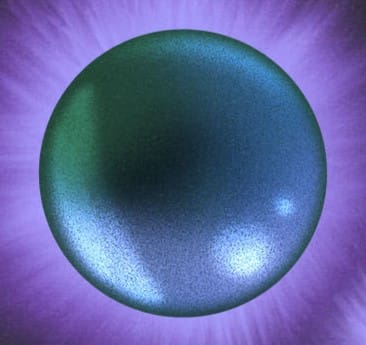Media Mail: Widescreen post-metal, sci-fi ambient, unearthed post-punk, and more
The column where I review any vinyl, CDs, and cassettes anyone sends me.
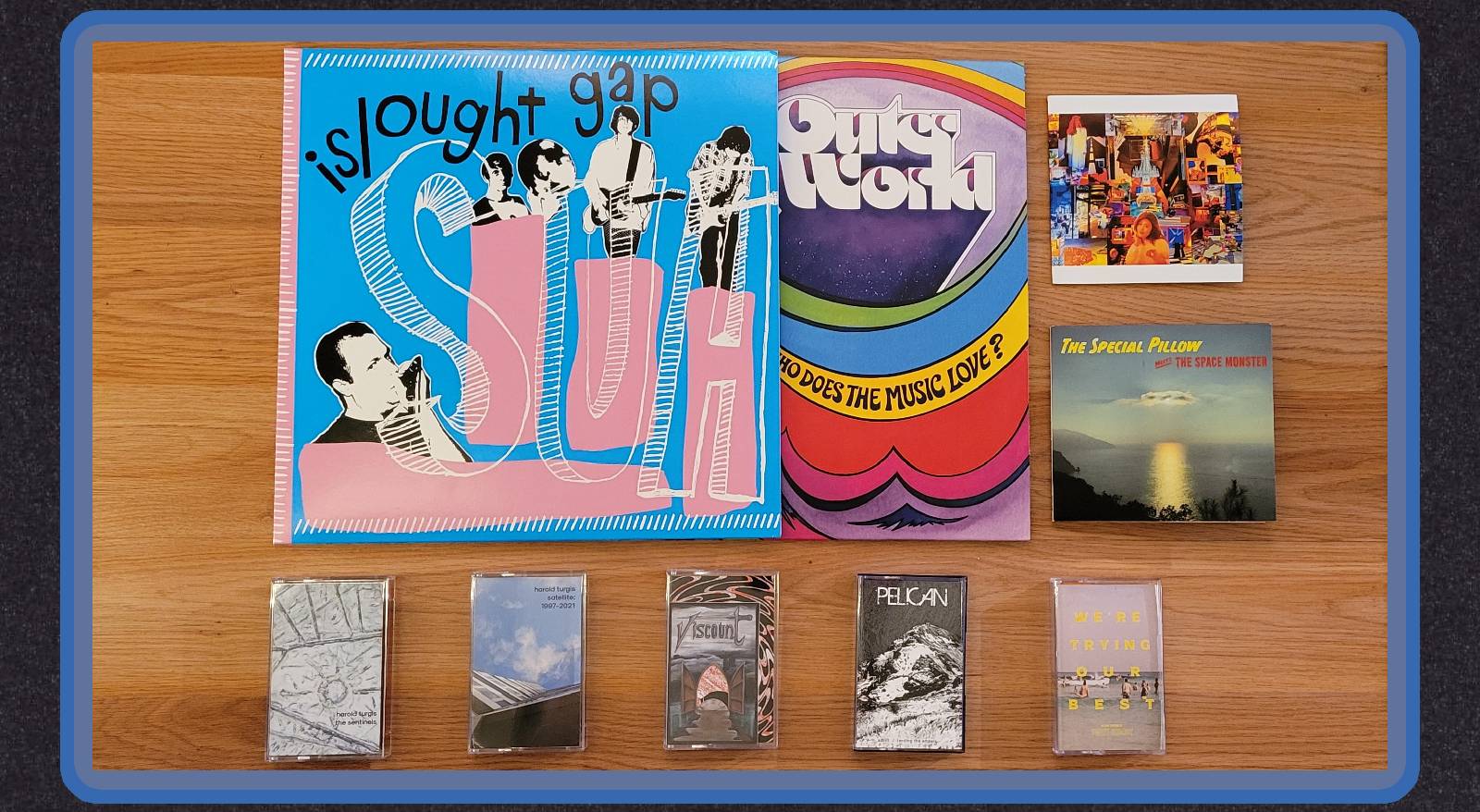
Earlier this year, I put a call out on Twitter for people to supply me with material for my column Media Mail, where I commit to review any physical media anyone sends me: vinyl, CD, cassettes, etc. I had done this column before and received five or six submissions, so I figured I'd get a similar response. Nope.
Within a couple weeks, I had amassed a pile of music at my doorstep, and even after I knocked out six reviews for the March edition of the column, I still had new items showing up in my mailbox. So that's why it's taken me over a month longer than I anticipated to get this column out, but now it's here. Nine items — vinyl, CD's, and cassettes — that I spent real time with and wrote about below.
But before you read, here's my spiel about the intention of Media Mail: My goal with this column is to call back to old-school zines from the Eighties and Nineties like Sub Pop and In Effect, where the writers would promise to review anything they were sent. Crucially, the writeups weren’t always positive; they were honest, critical, and, at their best, boldly opinionated.
This isn't me doing pay-to-play music criticism. You're not gonna get a nice flowery write-up just because you sent me some free shit. I'm doing this as an exercise to engage with material that either didn't end up in my email inbox, or that I probably wouldn't have reviewed to begin with. Either because it missed me, or because it's a style of music I don't typically cover.
If someone (an artist, label, publicist, etc.) values my opinion on music so much that they send me a physical copy in the mail to solicit a review, then I pledge, as I did with the six items below, to spend quality time with the music and give it an honest, thoughtful review. No matter what.
So without further ado, below are my thoughts on an eclectic bundle of releases: widescreen post-metal, far-out vaporwave, sci-fi ambient, unearthed post-punk and much more.
My mailbox is closed right now, but if you're an artist, label or publicist who wants to send me stuff for review in the future, keep an eye on my Twitter for a call-out post.
Outer World - Who Does the Music Love?
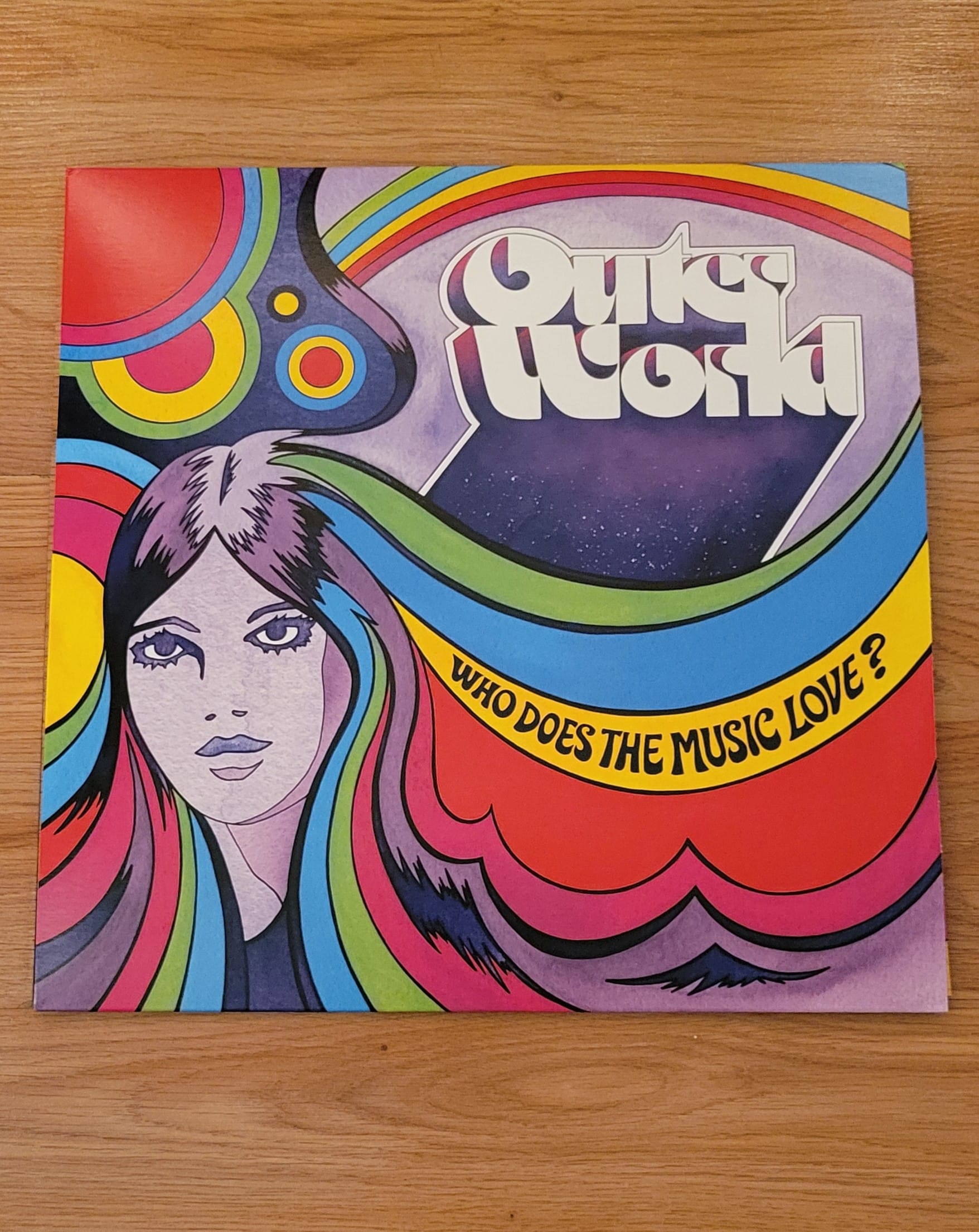
Outer World are the new band of Tracy Wilson and Kenneth Close, who previously played in the well-liked 2010s indie-rockers Positive No. Before that, Wilson was known for fronting the Nineties emo-core band Dahlia Seed, where her powerhouse belt carried the New Jersey band's stormy ragers to modest national acclaim. Outer World's debut, Who Does the Music Love?, sounds completely different than that band, and also quite unlike the Superchunk-y indie of Positive No's discography.
The press bio explains that Outer World was created as a way for Wilson to pick up making music after her voice was irreparably damaged from long COVID. Indeed, there's a lot less force in her delivery on these recordings, but she's still able to carry a tune while having fun dousing her vocals in spacey reverb. Her chipper sing-songs melt into the bubbling synths and psychedelic samples, coagulating into a technicolor wreath that adorns the chiming guitars and motorik grooves that propel these songs forward.
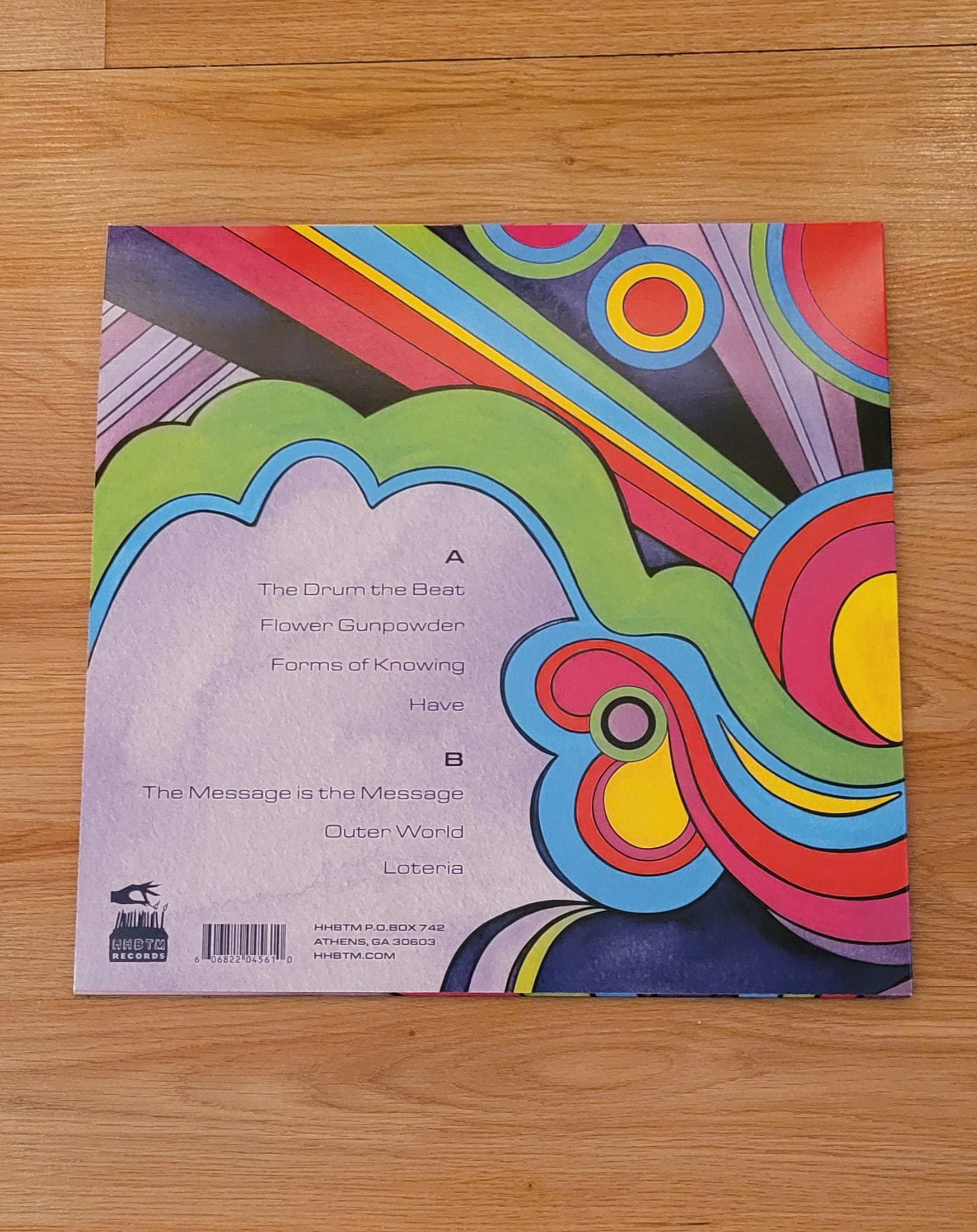
This is record-collector vibe music. A little bit Broadcast, a little bit Stereolab, and a whole lot of shuffling between retro synth-pop, post-punk, and lounge music. It sounds like the product of two indie-rockers honing their appreciation for studio overdubs and made-for-vinyl production quirks. The songwriting is loose and, at times, indulgently amorphous, particularly on side-A closer "Have" and album finale "Loteria." I much prefer the brisk, bass-driven psych-stroll of "Flower Gunpowder."
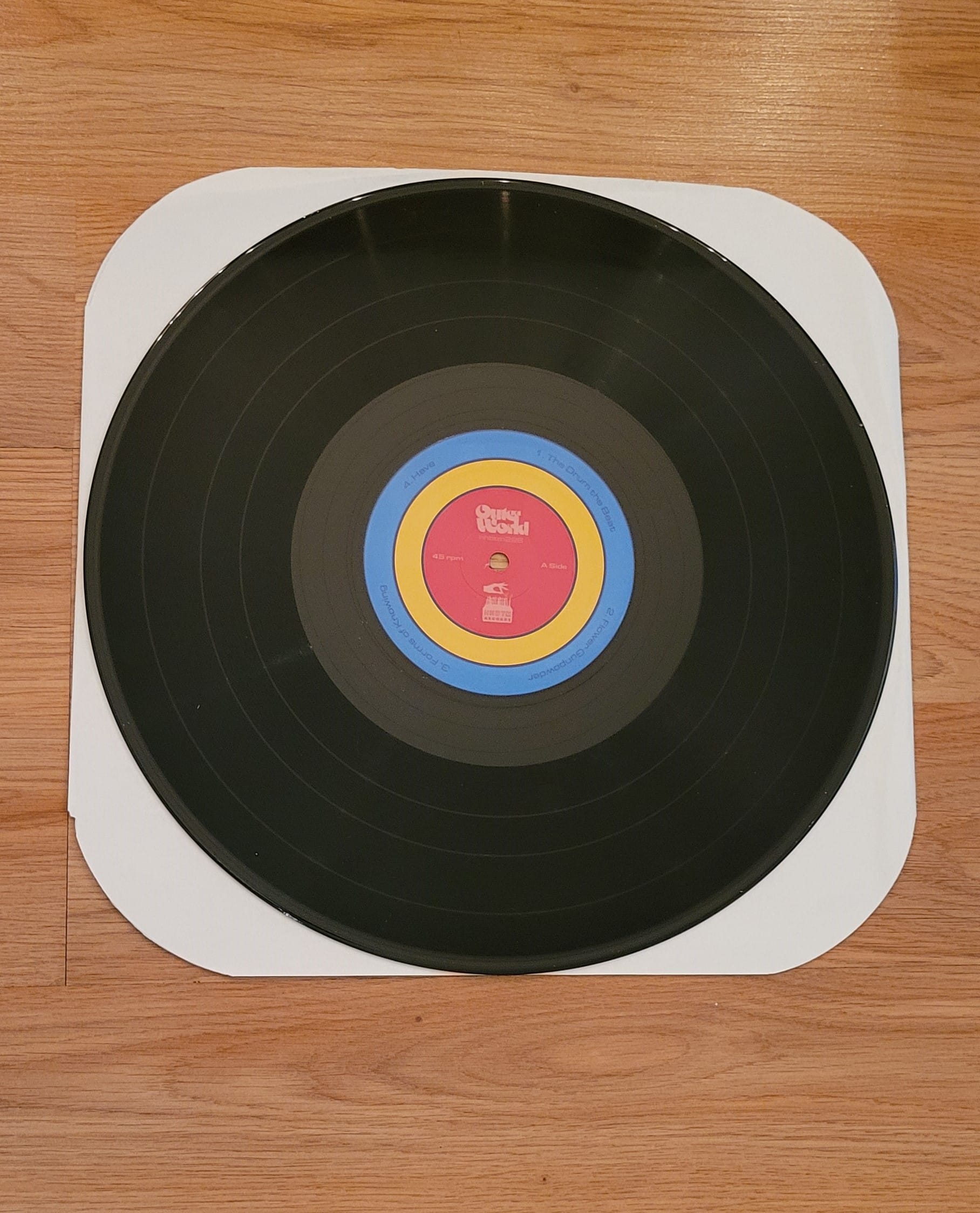
Notably, the album was recorded by Caufield Schnug of Lawrence, Kansas maestros Sweeping Promises, who are one of my favorite modern post-punk bands. I can hear a little bit of their swinging groove (and their singer Lira Mondal's guest vocals on opener "The Drum the Beat"), but I wish Outer World took a page out of Sweeping Promises' minimalist concision. They're also an odd band with a penchant for unusual vocal textures and "a-ha"-inducing studio artistry, but the starkness of their arrangements is what accentuate their peculiarities and deepen their tectonic rhythms. The primal groove and hypnotic subtleties of Outer World's music — elements that're central to the space-age krautrock and dancefloor jazz they're pulling from — get swallowed up by their more-is-more impulses. There's a lot to like on Who Does the Music Love?, but also just...a lot.
Sweet Nobody - We're Trying Our Best

Usually if I'm just giving an album a cursory listen, I opt to turn it off after three songs if I find it either a) unenjoyable or b) just fine. Three songs is almost always enough material for me to form a basic yay or nay opinion on a project, but Sweet Nobody's We're Trying Our Best is one of those albums that defies my reductionist tactic.
If I shruggingyly flipped this cassette off after its opening quartet of perfectly serviceable yet completely unmemorable dream-pop, then I wouldn't have heard "Young In Love," a mid-tempo ballad about romantic neuroses where singer-songwriter Joy Deyo sings, "Young in love and it's so awful/When you're no good at being social," with just enough melodramatic yearning in her voice to sell me on its awko taco sentiment.
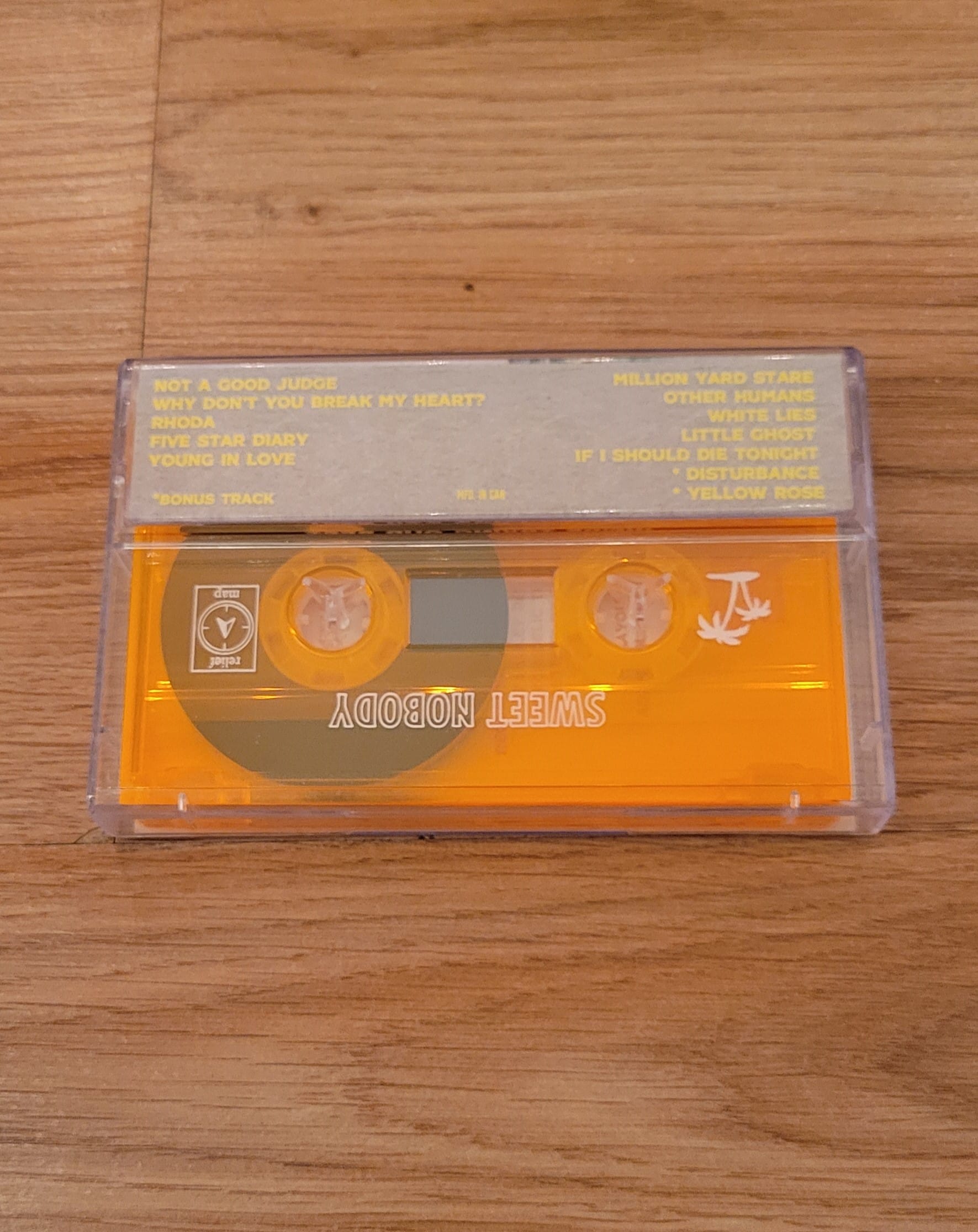
I also wouldn't have heard "Other Humans," where Deyo sings with a gritty, pitch-bending intensity that has so much more conviction in its bones than the snappy, Alvvays-lite dream-rockers that frontload this 2021 record. We're Trying Our Best only gets stronger as it goes on, with "White Lies" and "Little Ghost" kicking up some wiry distortion and tense, thumping drum beats to pull you out of the album's reverb-tipsy trance.

And then the best song — a track I genuinely loved upon first hearing it — is its closer, "If I Should Die Tonight." In this dollop of Sixties-pop gold, Deyo's voice adopts a regal quiver while she sings about taking a drive to take her mind off her mental woes, because "If I should die tonight," she poses, she "Don't wanna leave that way." She repeats that line six times during the hook, and gives the "way" a different treatment on each go-around, either tucking it under the Johnny Marr-ish guitar lick, or hoisting it up and letting it flap like a flag ("wa-AA-a-a-Y-y") in the cold nighttime breeze. I'm glad I heard it.
Pelican - "Adrift" / "Tending the Embers"
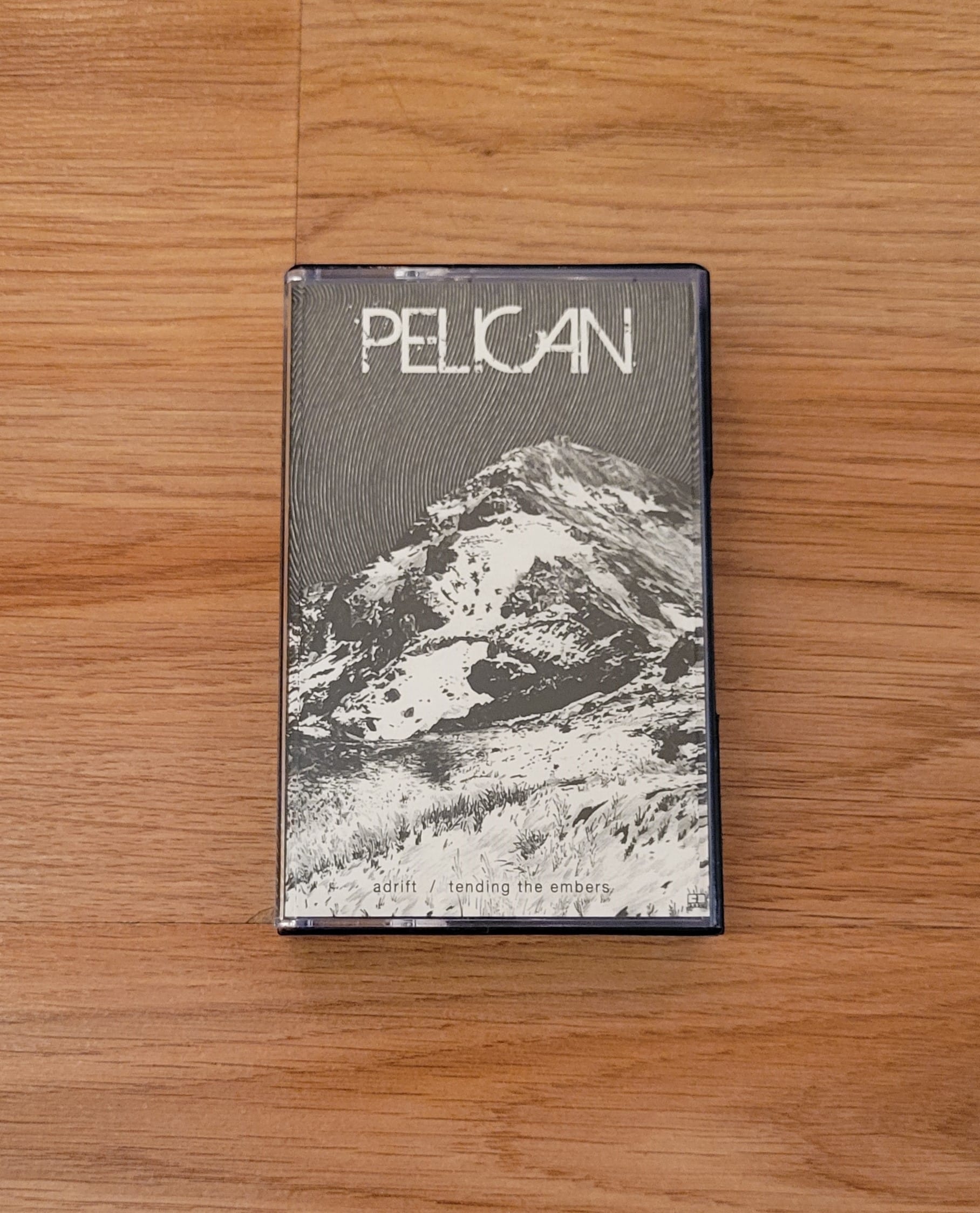
Pelican guitarist Trevor de Brauw has the unenviable task of sending me emails for his PR day job that largely go unanswered. So I'm sure he's happy to see that the nature of this column guarantees that I'll pay attention to what he's sending me for once. Nah, I'm just messin'. But honestly, I don't really know Pelican like that. I know they're one of the more celebrated post-metal bands of the 21st century. I've enjoyed what I've heard of them over the years, and I typically enjoy music within the style they play. But I'm not coming at this new two-songer with any real impressions on — or biases toward, for that matter — this band's 23-year, six-album arc.
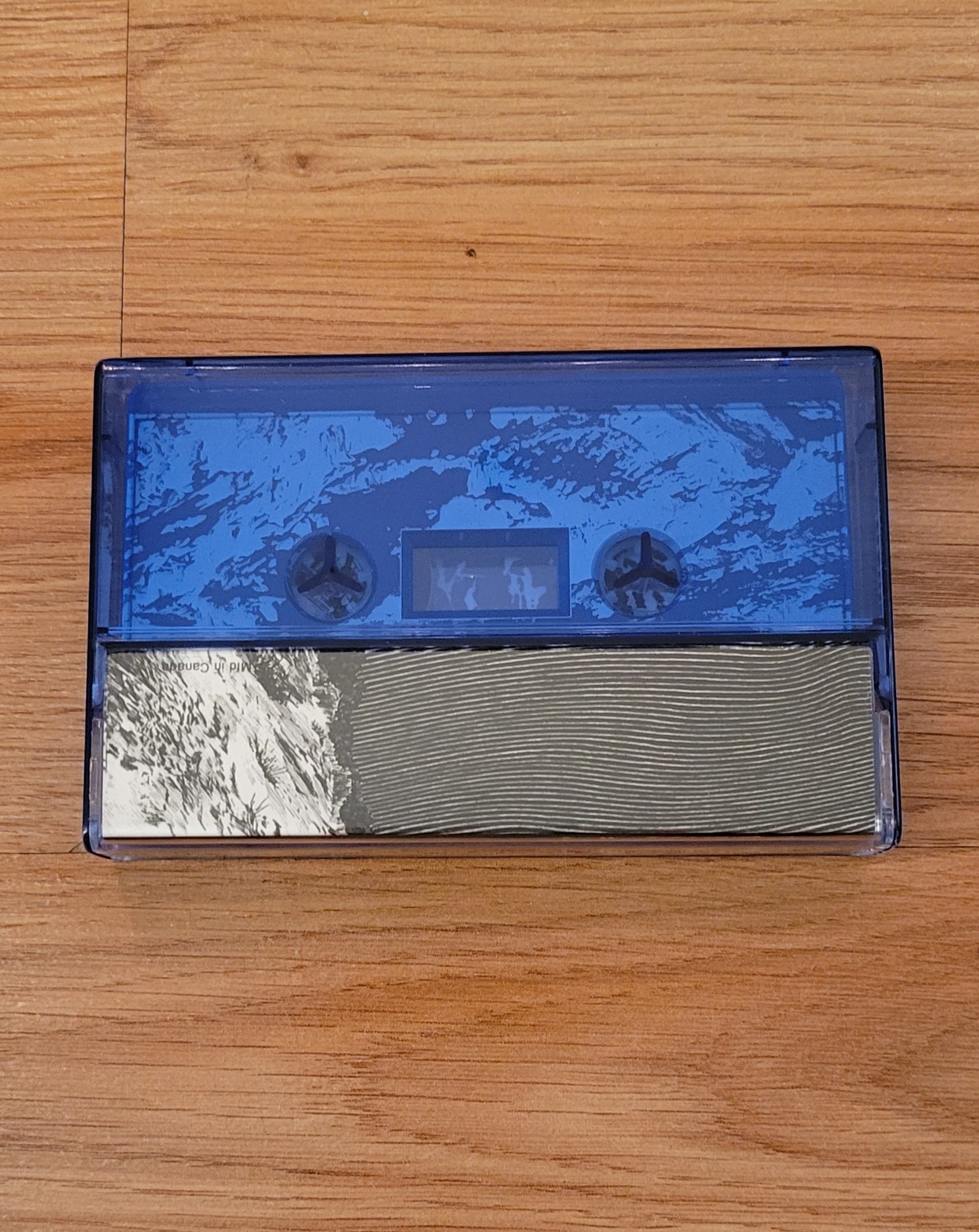
I'm usually the type of music listener who has weird hangups about dipping my toe into a band's sizable discography with whatever their latest release is, but it was honestly kind of fun to basically begin my Pelican journey with this cassette. And I enjoyed these songs quite a bit! "Adrift" is a Melvinsy romp with a bluesy main riff and some deep, plunging grooves that had my neck bobbing like a stoned turkey by the one-minute mark. There's a slightly more complex, palm-muted lead that gets added on top later in the song, but the track never gets excessively complicated or noodley, which is a trap that instrumental metal bands can sometimes fall into without a vocalist present to keep them grounded.
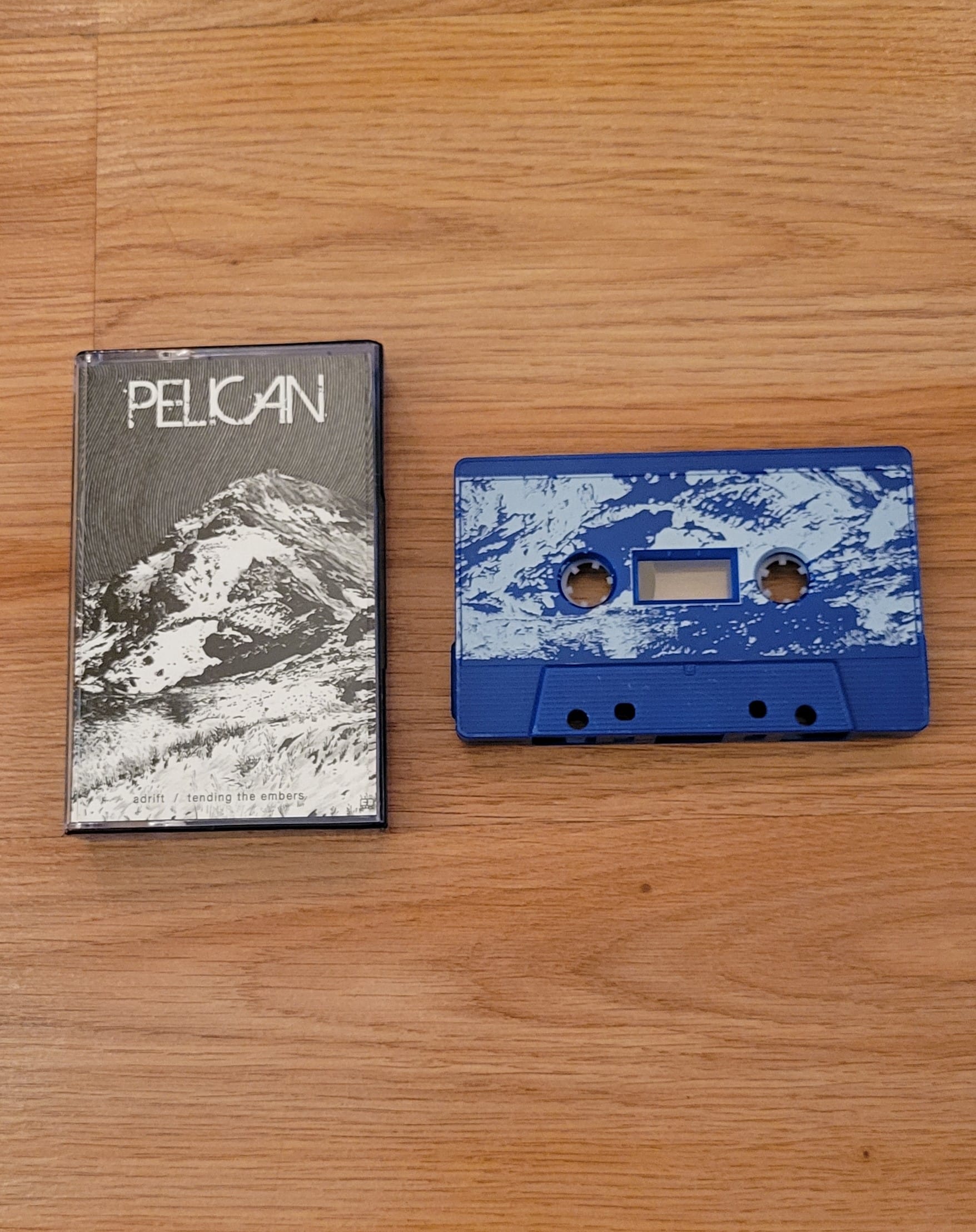
"Adrift" ends with some really heavy dirge-ing, and "Tending the Embers" begins a good bit spacier, with a lead lick that sounds like it could've been pulled from Mastodon's Crack the Skye-era vaults. Once again, Pelican never let their obvious technical abilities stifle a great groove. The bass on "Tending the Embers" is particularly plucky, and the drumming pattern has the dutiful complexity of a chef jumping from pot to pot during a lunch rush; dizzying to an onlooker, but totally methodical to the expert at work.
Harold Turgis - The Sentinels / Satellite: 1997-2021
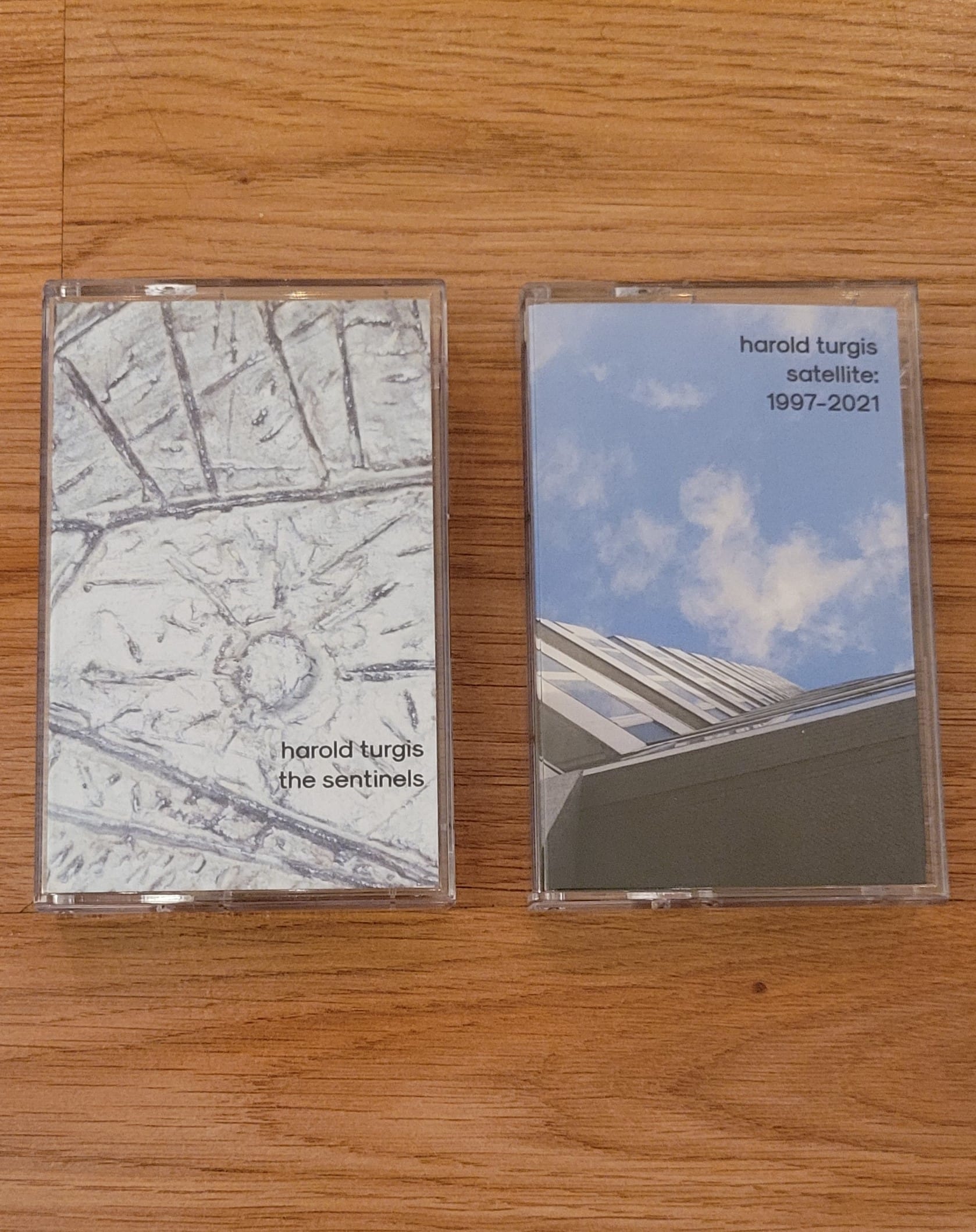
I was sent these two cassettes together so I'm gonna review them together as one. I had no idea who Harold Turgis was when I received these. Between the artist's name and gray-scale cover of The Sentinels, my mind immediately thought of Harold Budd, the late ambient icon who I'm positive Harold Turgis took some amount of inspiration from. It turns out I wasn't too far off. This is instrumental electronic music, but I hesitate to call all of it "ambient," as it's a lot more active than the placid drones of the Budd work I'm familiar with.
The A-side of Sentinels contains five different compositions denoted as, "Red Star/ The Sentinels (East)/ Blitzspear / The Sentinels (West) / The Shining Pyramid." The first sounds like a homing missile chasing a shooting star across the galaxy. The second sounds like an empty tennis bubble with one machine in the far back that's attained self-awareness, grinding to a start and firing sparks in every direction. The third sounds like if the tennis ball machine learned to walk and made its way outside of the court dome and started night-stalking through the neighborhood. The fourth sounds like if John Carpenter saw the tennis ball machine creeping through his backyard and started frantically composing a score that evoked the impending singularity he was bearing witness to. And the fifth sounds like the homing missile got bored of the shooting star and decided to refocus its attention on the sentient tennis ball machine romping around planet earth.

The flipside of Sentinels is just one composition, a 16-minute piece dubbed "Xeethra" that's a lot chiller than the sci-fi drama on the other half of the reel. "Xeethra" sounds like a spinning turbine, or like the soundtrack to an obtuse series of hallways in a video game that take you 20 minutes longer than you expected they would to navigate. It's mildly foreboding but also stately and non-threatening, comforting even.
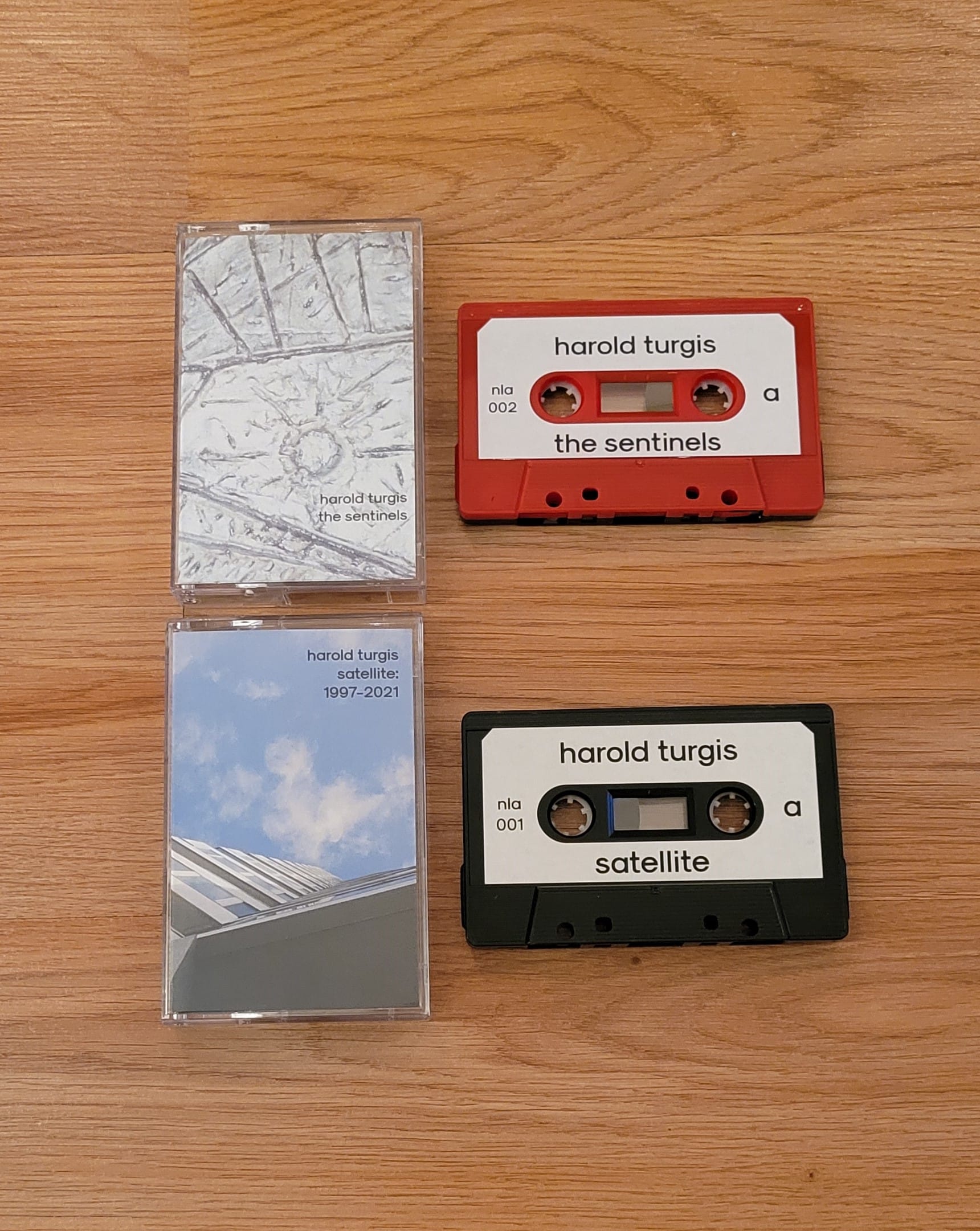
Satellite: 1997-2021 is similar to Sentinels, but some of it does, as its title would suggest, sound a bit more primitive and lo-fi. As if it was crafted in, say, 1997 instead of 2020. Featuring 11 different movements on each 20-minute side, the sounds jump from Selected Ambient Works-style ambient jaunts to plundered drum breaks seasoned with seagull squawks, lapping waves, and a sound bite from an architectural lecture that sounds like it was recorded in 1955. At points I felt like I was listening to a Madlib record. Other times, it sounded like I was listening to a jewelry store alarm getting processed through a delay pedal. Satellite doesn't have the focus or precision of Sentinels and loses me by side-B, but I found it mildly interesting overall. Sentinels is great, though. What a rush!
Viscount - 10 Past 10
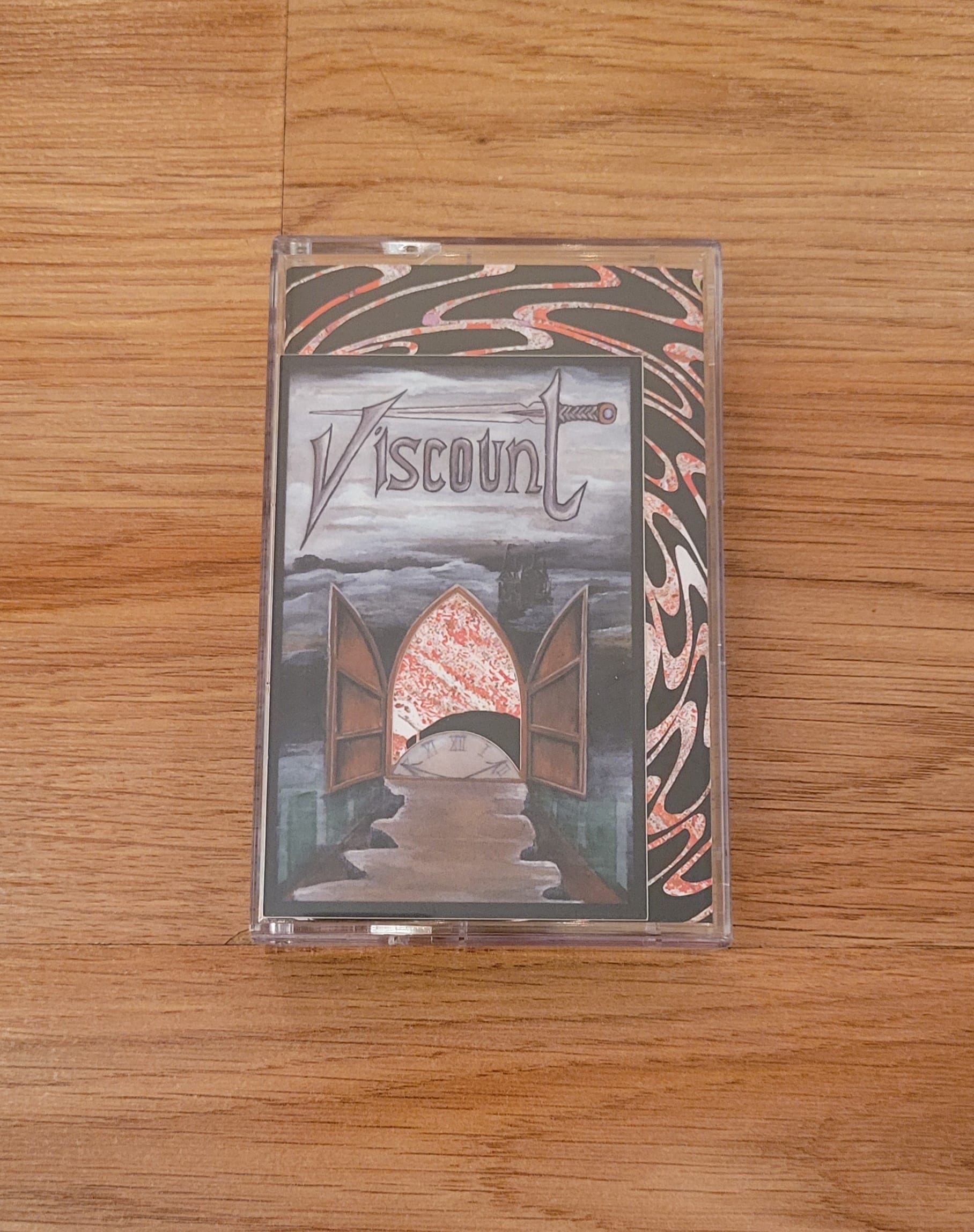
Between the sword-adorned logo, the spooky cover art, and the image of an artist donning chain mail, I figured I was in for something heavy with this Viscount tape. Nope. 10 Past 10 is a collection of sleek, chittering synth-pop that sounds straight of mid-1980s England. The drum machines are stoic and mechanical, providing a steady beat for the moody synths to sparkle and purr atop of.
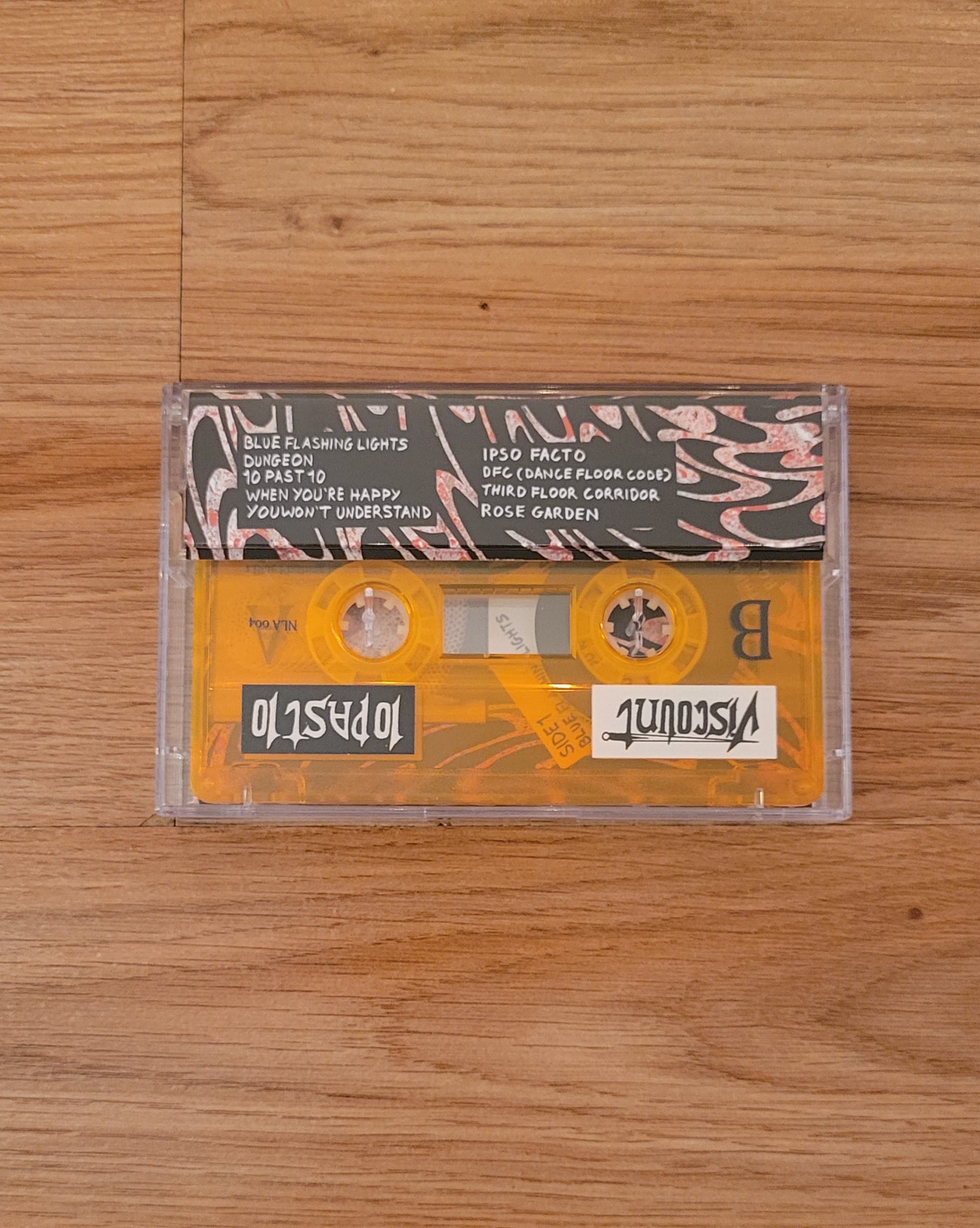
Viscount is the solo project of Lucy Anstey, who also plays in the London post-punk band Primetime. Her background in punk comes through in the punchy minimalism of 10 Past 10, given the amount of atmosphere the project conjures despite its rigid, lo-fi presentation. The songs are never all that cluttered or complex, but there's always something for your ear to grip onto. Whether it's her sweet-sung voice on the cover tunes, "10 Past 10" and "Rose Garden," or the hi-hats that happily clatter while the basslines squiggle.
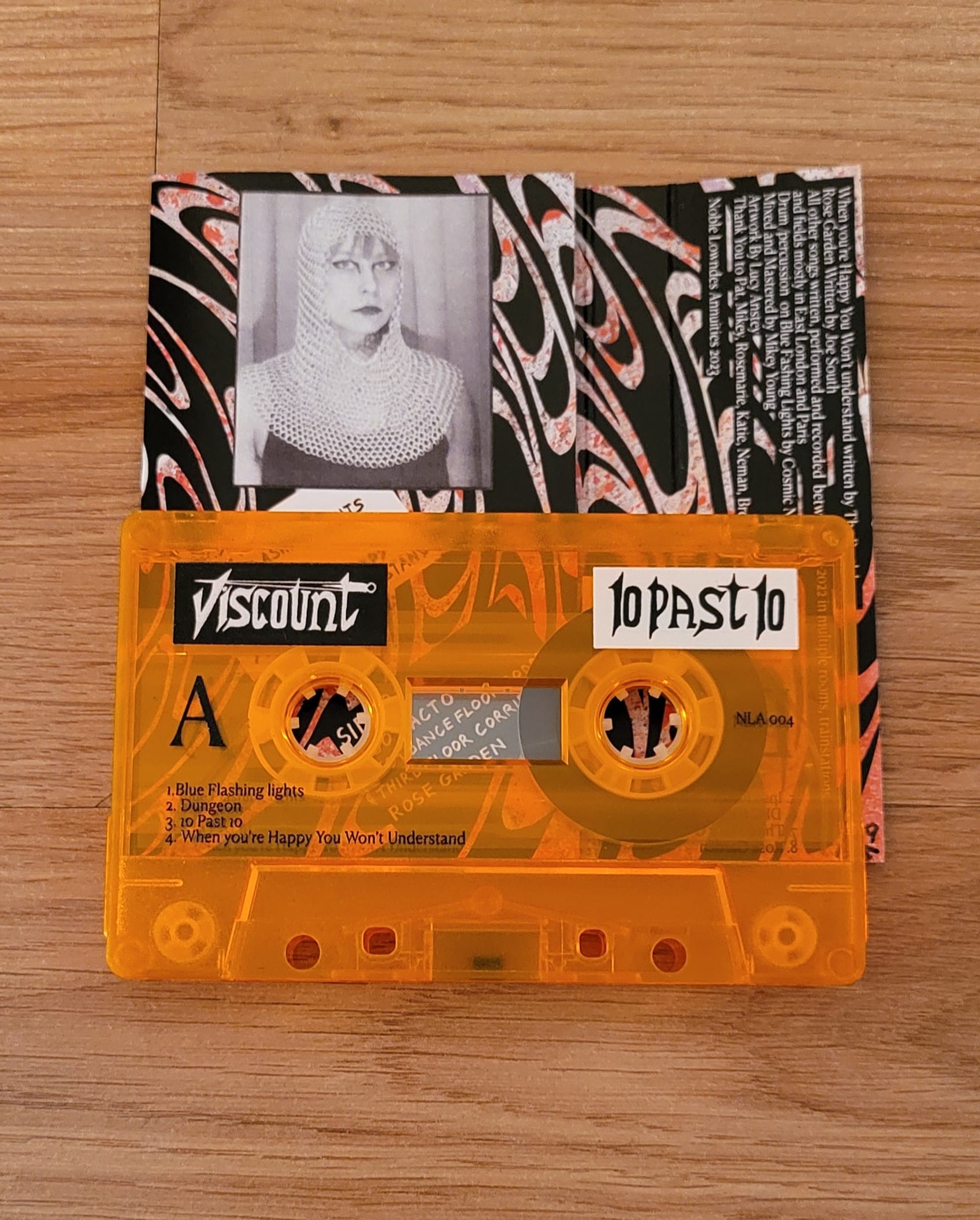
The humble tunefulness of Viscount's more conventional pop tracks remind me of early-80s Glasgow bands like The Pastels and The Loft, but the more traditional synth-pop tracks on here are obviously inspired by New Order. Opener "Blue Flashing Lights" would slide nicely into a playlist next to "Ceremony," while other tracks on the side-B are a little more slanted. "DFC (Dance Floor Code)"uses a morse code beep to form its ominous melody, and "Third Floor Corridor" is as creaky and surreal as its title suggests. If you have even the vaguest appreciation of gothy synth-pop then you'll find something to enjoy on 10 Past 10.
shamane - lucky as expected the sky is pink love in the distance
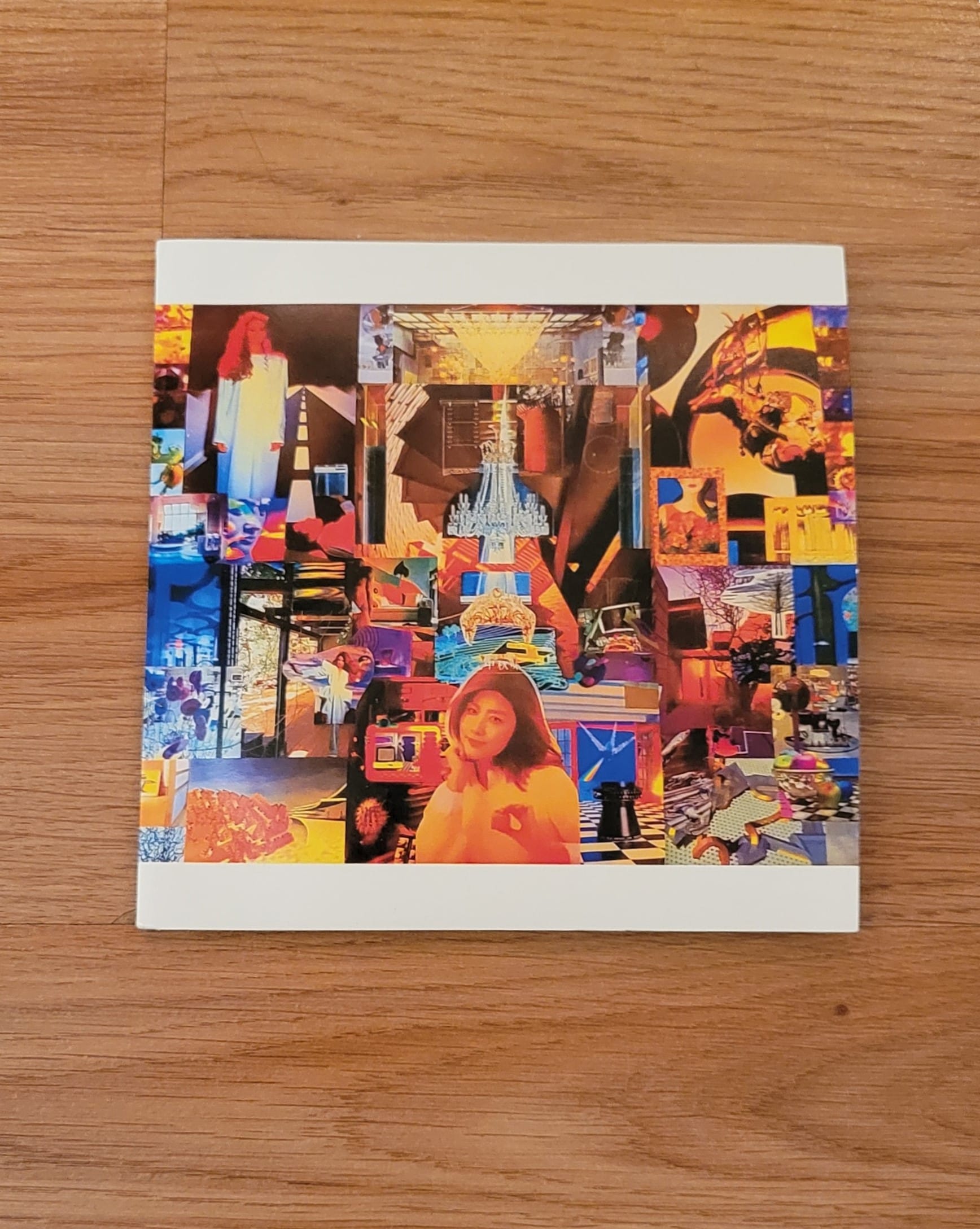
I had absolutely no clue what this would sound like based on the wordless collage on its album cover, but once I heard the first couple tracks, it totally made sense: this is some vaporwave. After digging around online, I learned that shamane is a vaporwave artist who's unloaded well over 20 albums over the last 15 years. That's a relatively typical output for composers in this genre, but it's still impressive to see someone keep the prolific streak up now that we're well over a decade beyond what most casuals would agree was vaporwave's peak (2013ish).
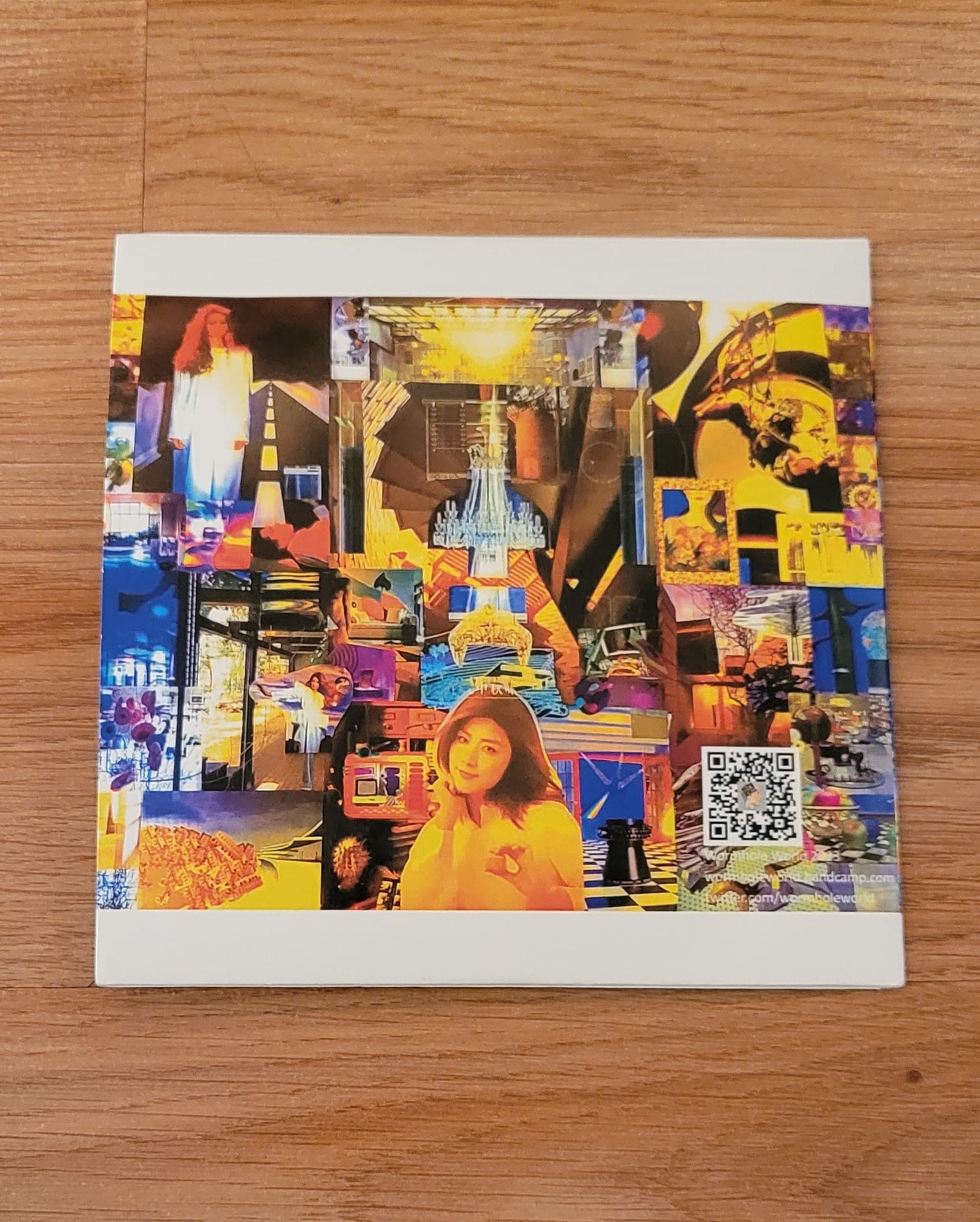
I'm definitely a casual when it comes to this type of thing, but I also don't think that you need to be schooled in the genre to understand what shamane is getting across with lucky as expected the sky is pink love in the distance. It's 27 songs that clock in just shy of 50 minutes, and the last few tracks account for more than a quarter of the whole runtime, so the average song length is about a minute and a half. Therefore, it's a collection of vignettes, and most of them are meandering synth drones riddled with buzzes and bleeps that just sort of float there like a bumblebee taking its sweet time to scan a rosebush.
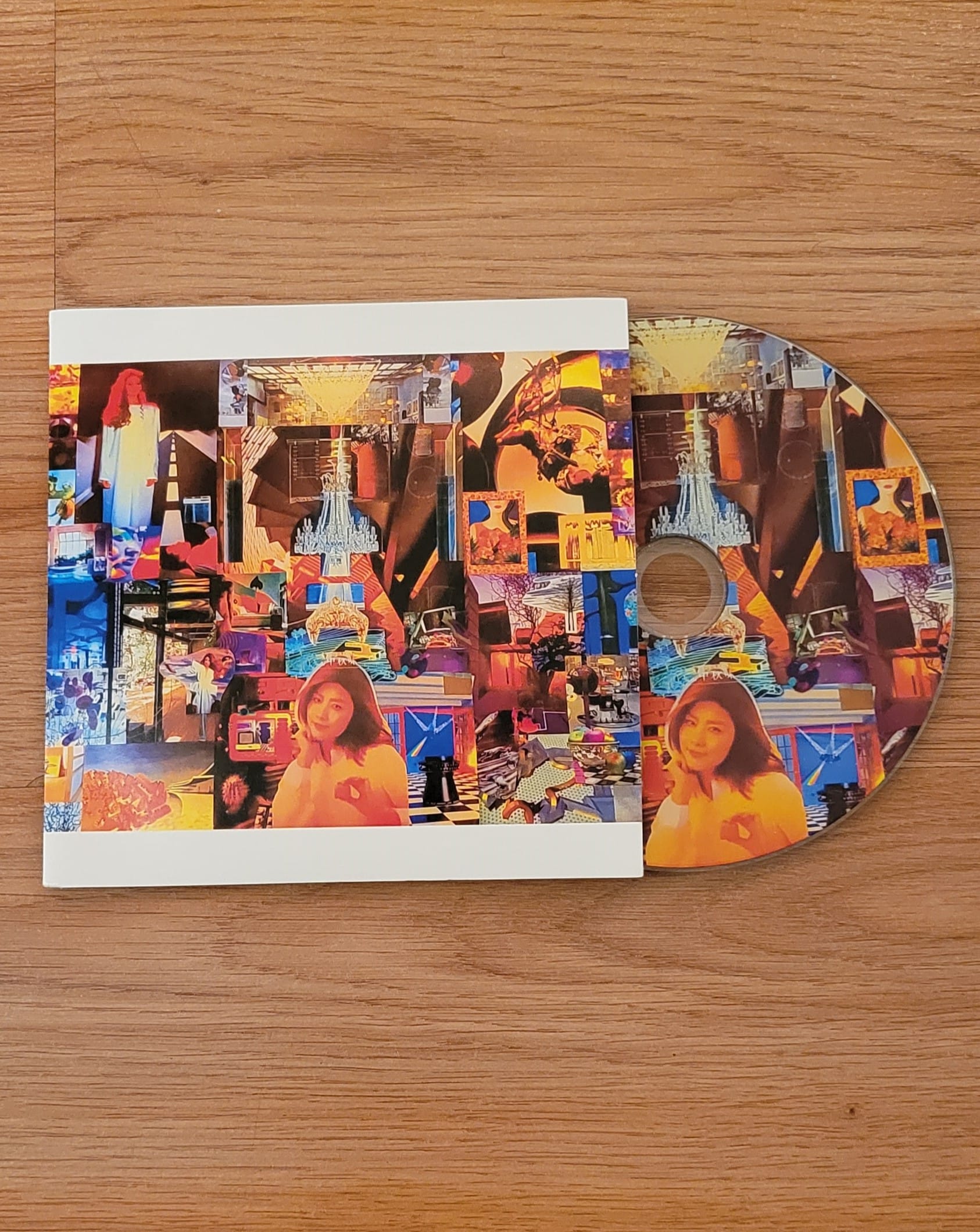
It's meant to be taken in as a whole piece, and I enjoyed my time doing so well enough, but don't really foresee myself going back for a second helping. While the droney ambient songs are well-done for what they are, they become quite samey after the 12th or 13th one, and only the six-minute closer has enough meat on its bones to actually build out an engrossing atmosphere. The most innovative moments are songs like "infinite guidance" and "Hyori's cabin," where shamane sounds like if Ken Carson's raps were isolated from the beats, reversed, and slurred together into auto-tuned cat fights. Shrill and discombobulating, they verge on obnoxious but at least offer a sound that differentiates this project from any number of the placid vaporwave epics that line the crevices of Bandcamp and YouTube.
The Special Pillow - The Special Pillow Meets the Space Monster
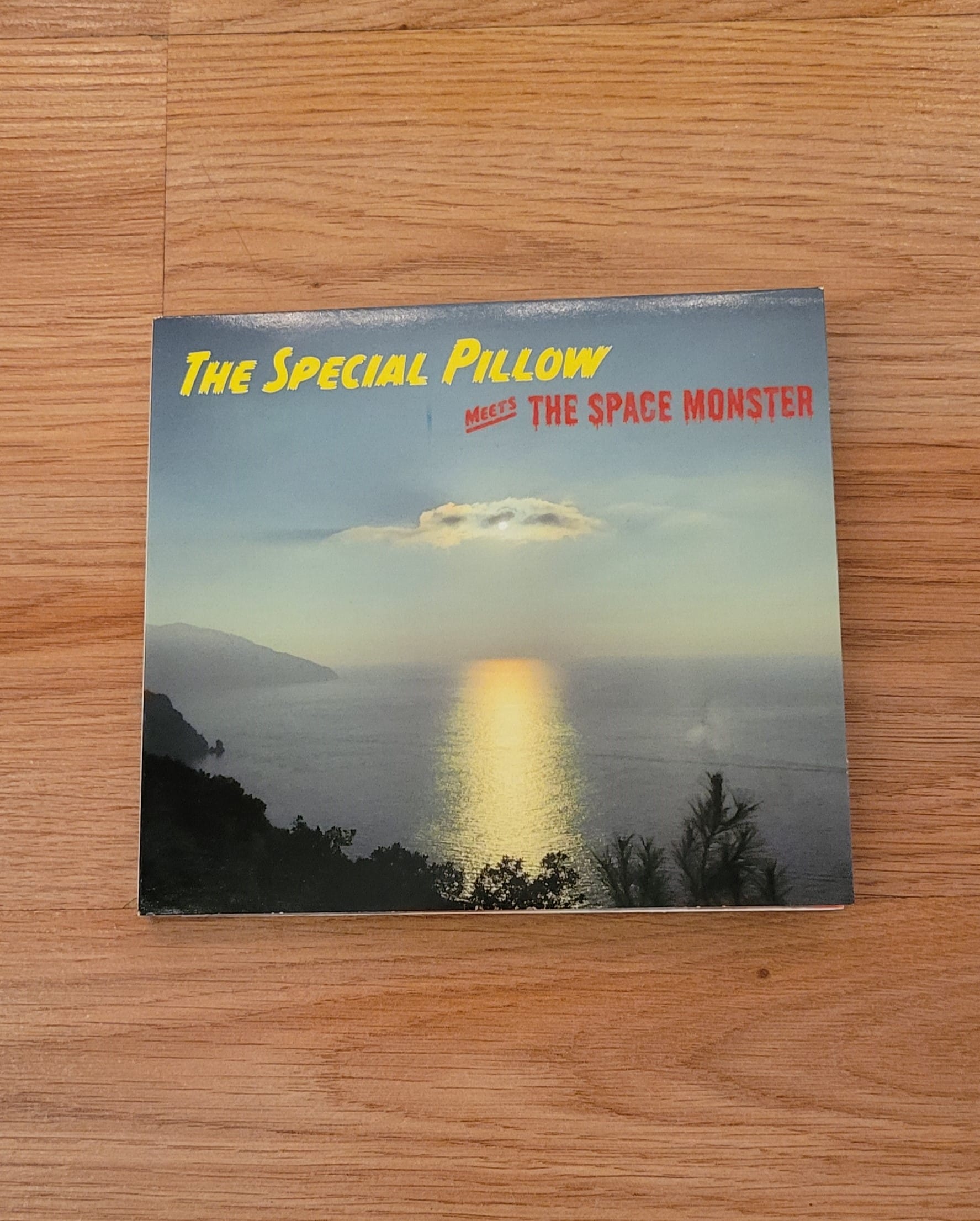
I'll be honest: I thought this was gonna be bad. I realize that the cover art is trying to spoof Sixites monster movies with that chintzy font, but it still comes across as super amateurish. Like a lame local band who hired their buddy who hasn't drawn since college to design the cover. But once I actually threw this disc onto my CD tray, I quickly ate the words of disparagement I muttered to myself a few minutes earlier. This EP is really damn good.

The Special Pillow, as I learned, have been making music since the year I was born, and they have a deep discography behind them. The quartet hail from Hoboken, and are indeed a degree or two of separation from Yo La Tengo. They also sound kind of like New Jersey's greatest indie institution; bassist-singer Dan Cuddy sounds like a slightly more buoyant Ira Kaplan, and violin/viola-singer Katie Gentile even sounds a bit like Georgia Hubley when she's casually crooning.
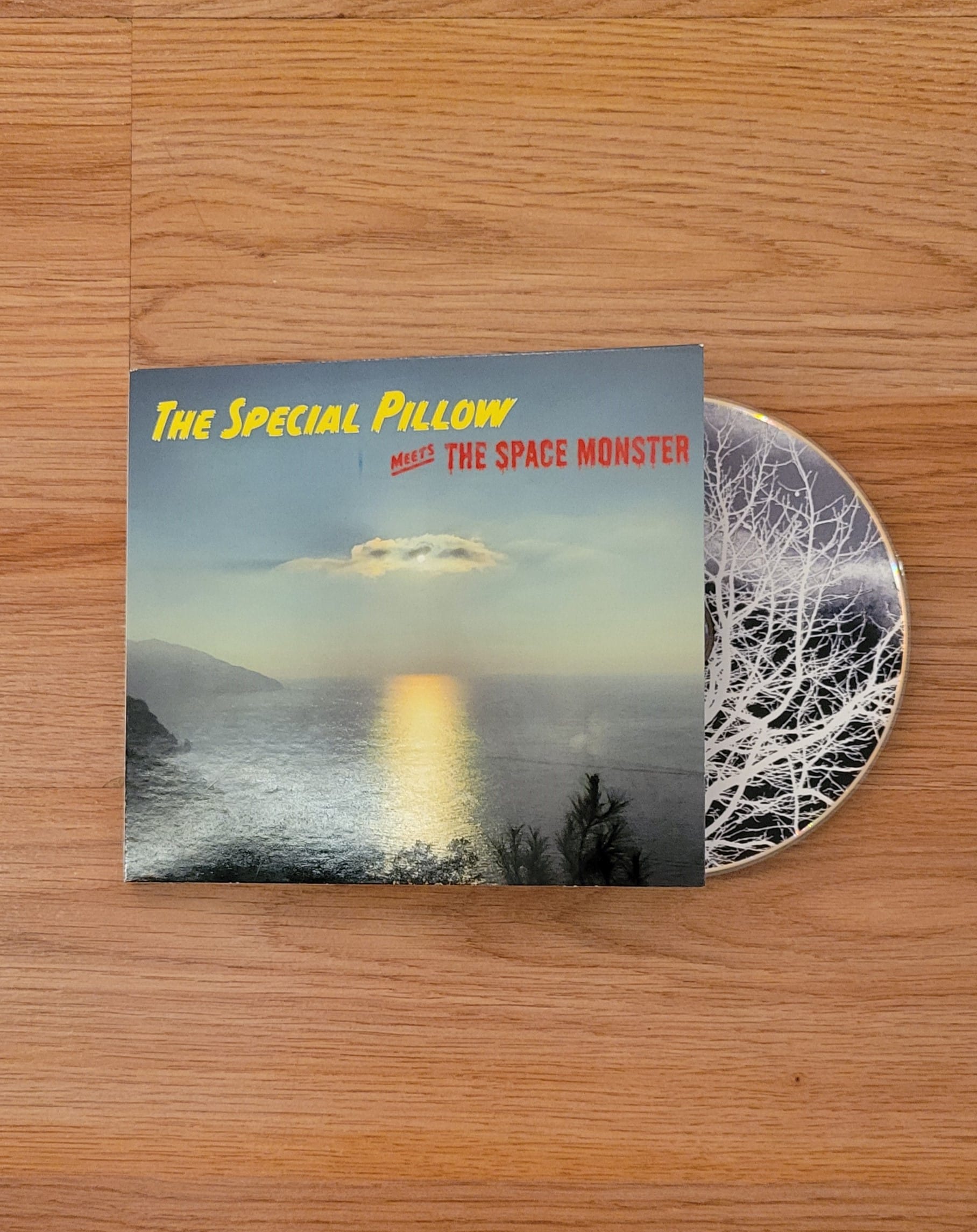
I don't love all six songs on The Special Pillow Meets the Space Monster, but I genuinely do love half of them. "A Certain Level of Uncertainty" builds steadily to an outpouring of gnashing guitars that rain down atop its tight groove. The Gentile-sung "Give Up the Ghost" has dreamy, woozy violins that color in the lines between the taut drumwork. And the stunning — yes, stunning — "That's the Way It's Got to Be" sounds like a James Bond theme covered by White Light/White Heat-era Velvet Underground. The instrumental jam during its second half is positively roaring, and the crisp production on the whole EP truly lends itself to that passage unrestrained rawk bliss. I guess don't judge a CD by its lackluster packaging.
Is/Ought Gap - SUA
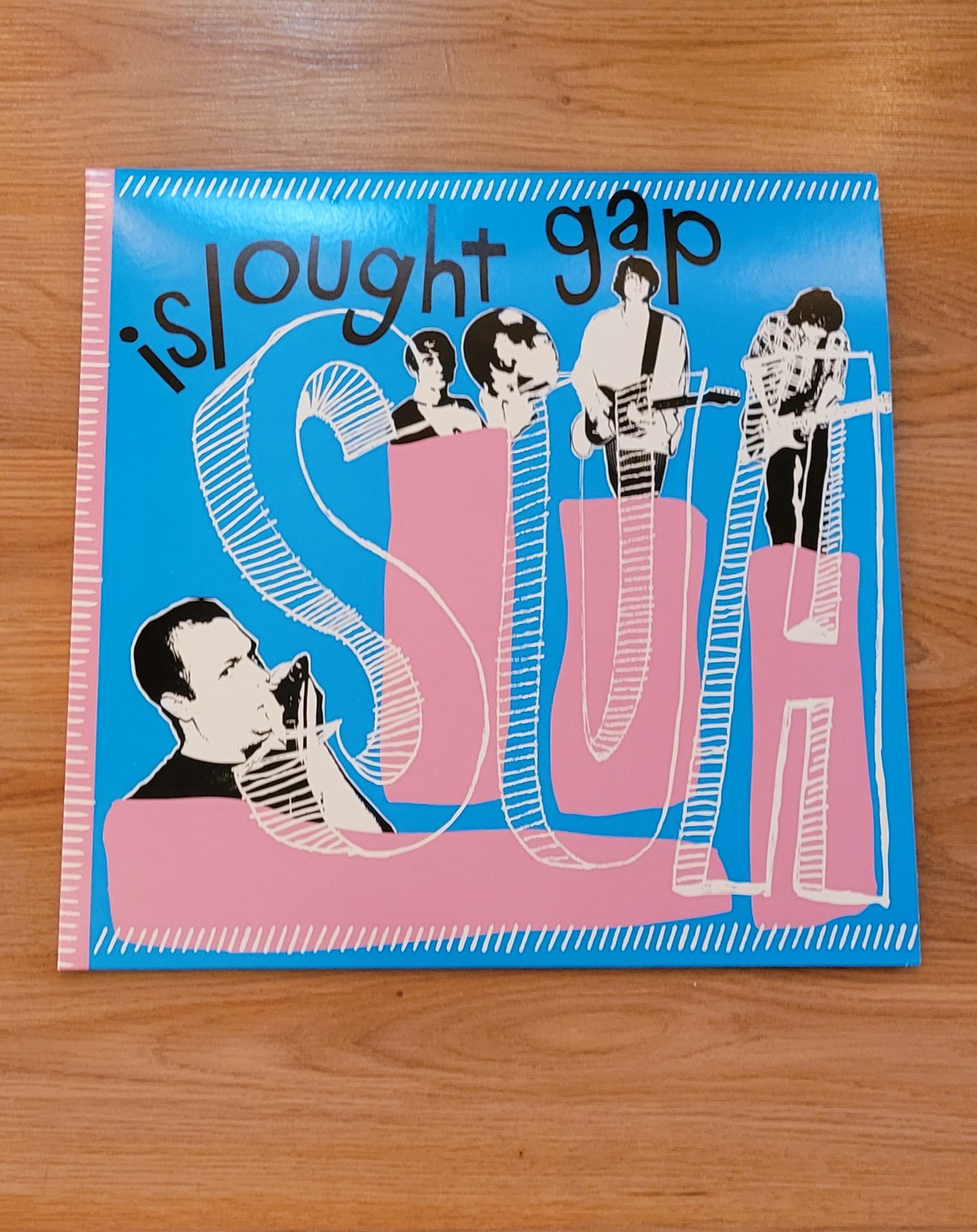
This is an interesting release. Is/Ought Gap were a band from the early 1980s Athens indie scene who never actually released anything during their heyday. In 2014, they reunited after 30-some years and put together a seven-inch of new material, and then this album, SUA, compiles that stuff with unreleased material from 1984, and some live recordings from 1985.
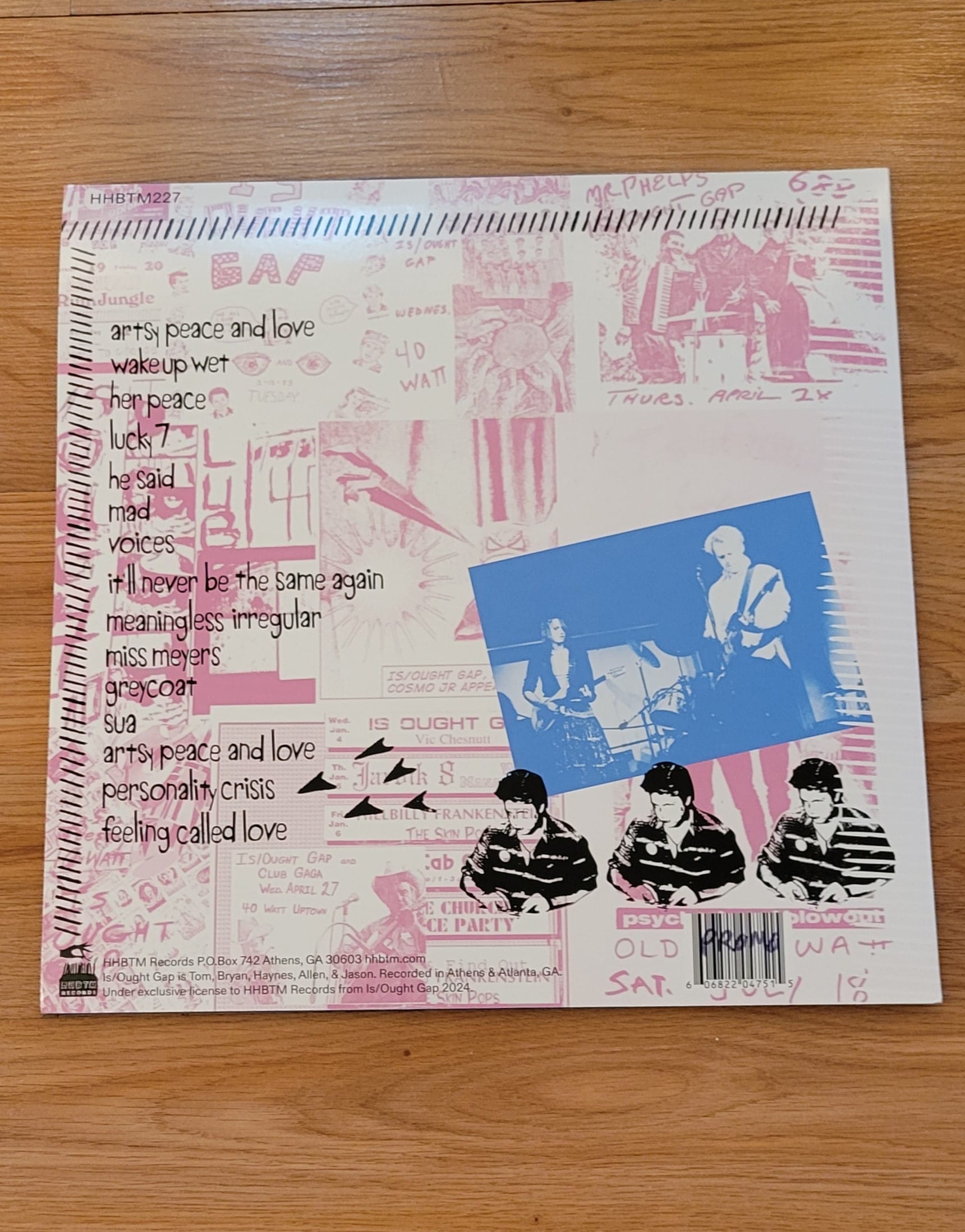
Having drank the same groundwater as the B-52's and Pylon, there's a little bit of those bands' whimsical angularity in their early material. Songs like "Artsy Peace and Love" are clearly informed by early English post-punk bands like Wire and Gang of Four, but there's a zaniness in guitarist-vocalist Bryan Cook's voice that specifically reminds me of Fred Schneider. That said, the instrumental "Voices" might be my favorite cut from the 1984 side of this disc. These guys can play, but Cook's frenetic shouts and shrieks become tiresome after a while, so it's nice to hear them shut up and groove on this Wire-y (and also wiry) ripper.
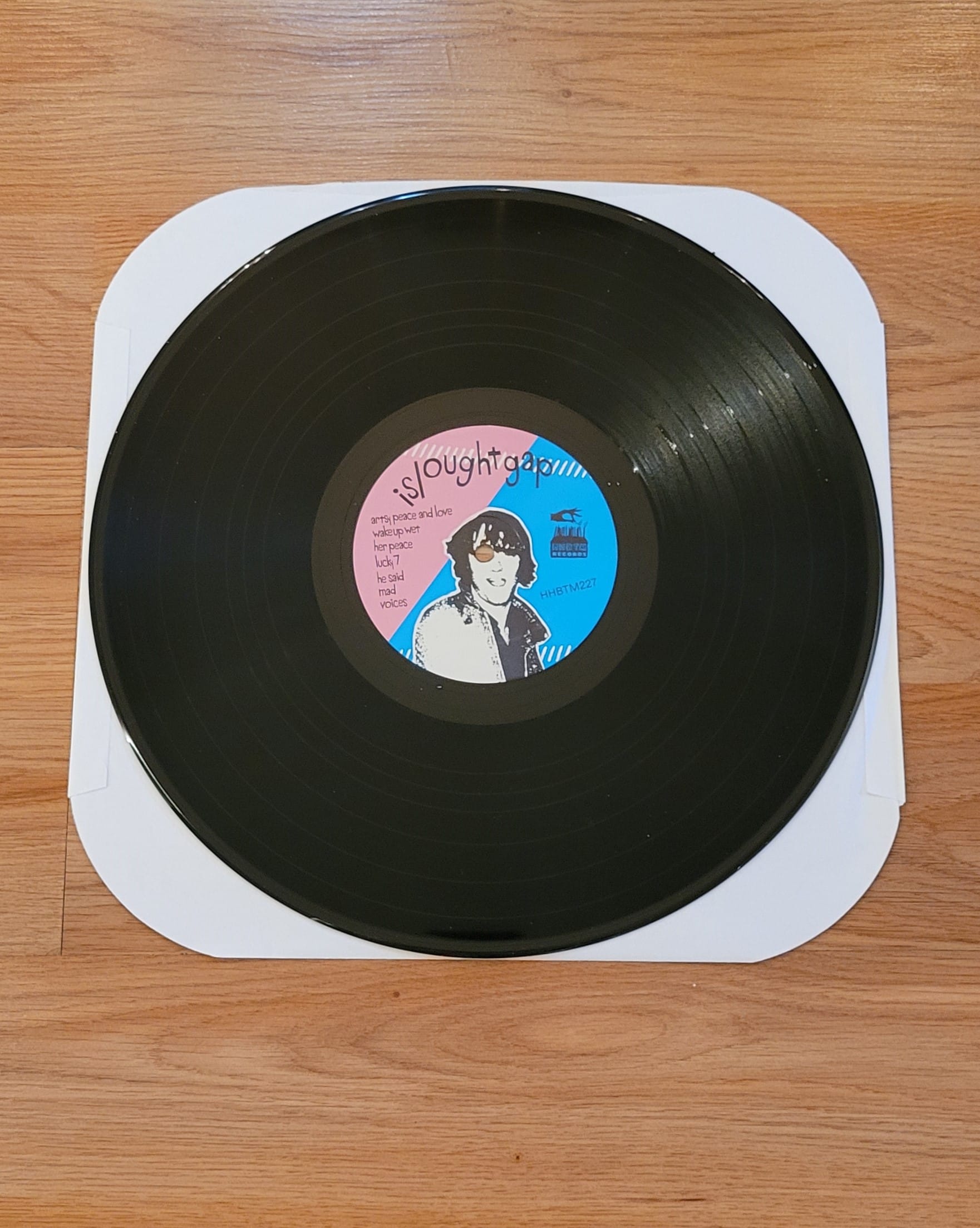
The new songs are a lot better than I would've expected from a local band who were dormant for nearly three decades. Cook's vocal delivery on "Greycoat" and "Meaningless Irregular" have more of a Pavement/David Berman vocal delivery compared to the English huff he employed on their early stuff. But my favorite tracks are the live recordings, which give an idea of how gassed-up and thrilling these guys were back in the day. Their covers of New York Dolls' "Personality Crisis" and Wire's "Feeling Called Love" are loads of fun. All in all, SUA is a cool document of a piece of history that probably wouldn't exist unless HHBTM Records cared enough to make it happen. Respect.
